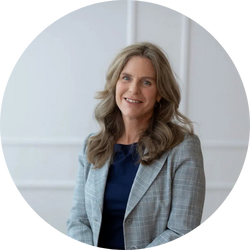
Psychotherapy becomes a lot less daunting when you realize it’s actually just a way to tell your story. I remember hiding under the covers with a flashlight as a child reading or writing. It turns out I knew something many famous psychologists understood long before I was even born. The truth heals us and brings resolution – especially if we are heard and have room to discover how to make meaning out of our experiences.
I was a journalist for almost 30 years and that’s one of the reasons I changed careers. Even though I discovered many injustices and gave many people the opportunity to be heard – there was no mechanism to help them or myself create meaning out of our shared experience. That is the reason I love being a psychotherapist.
I have treated all kinds of conditions including
There are different types of psychology that have evolved over the last 100 years. Freud and Jung were psychoanalysts during a time known as the psychodynamic period. The behaviorists came next, but the period I feel aligned to came after that in the 1960’s. The humanists evolved when symbols of peace and love were everywhere, and psychologists were being taught to emphasize building a strong therapeutic relationship through reflection of the client’s perceptions and experiences. They believed this alliance helped the client find and become their most authentic self.
There are many psychotherapy processes that have evolved with these principles in mind that I use in my practice. These include
I also specialize in couples and family therapy. I begin with helping clients understand attachment disorders and how this type of wounding creates disruptive patterns that disconnect us from the people we love the most.
I worked as a volunteer and mentor with people who experienced substance use disorders for many years before becoming a psychotherapist. This volunteer work and mentoring with individuals and families in grassroots organizations and in treatment centers is one of the foundations I rely on in my sessions.
I found in this work too, that once a person has told all of their story, and what they had come to believe about themselves because of these events – they were free and ready to learn new ways to be in the world.
This is the best part! Every story can have a new ending.





Choosing a therapist is an important step: it is easy to get lost in the sea of information about different therapeutic modalities and select which route will address your concerns most effectively. We take care of that for you. We will work with you in a positive way to address your needs.